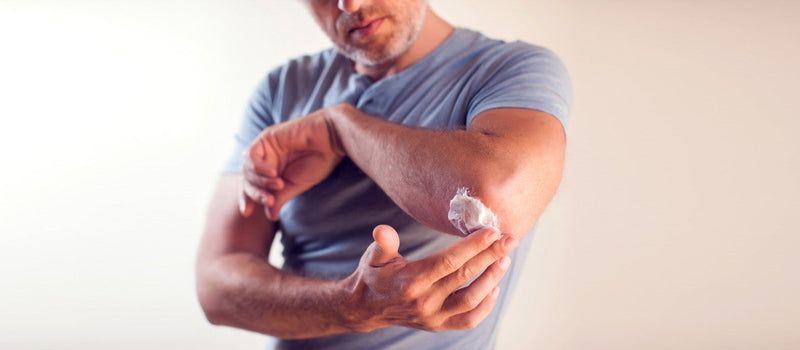

Managing diabetes daily, whether you have Type 1 or Type 2, can be stressful. You need to manage your blood sugar, which starts by eating a variety of healthy foods from all the food groups in the amount set in a prescribed meal plan. In addition to making healthy food choices, you need to check your blood sugar levels, take your medications and remain physically active to help control weight, strengthen your heart, and improve circulation to lower the risk of heart diseases.
Diabetes and sleep are intricately linked
The challenge of managing your diabetes makes it doubly important to get a good night’s sleep to start the day off right. But diabetes and sleep may be a problem. You may find getting quality and sufficient shuteye difficult. This can happen because blood sugar can fluctuate overnight – up or down – leading to insomnia and fatigue the next day. feelings anxiety or depression about the disease itself may also keep you awake at night.
High blood sugar causes the kidneys to overcompensate which results in frequent urination. Frequent night trips to the bathroom interrupt sleep. High blood sugars also may result in headaches, increased thirst and tiredness, all of which interfere with sleep. On the other hand, you may experience low blood sugar at night due to going too long without eating or because of an imbalance in your medications. Low blood sugar can result in sweat, nightmares and irritation or confusion upon waking up.[1]
Sleep deprivation can cause diabetes
While diabetes can cause problems with sleep, sleep problems can play a role in diabetes. Type 2 diabetes and sleep disorders are prevalent conditions that often coexist. Research indicates a high correlation between sleep quality and the chance of acquiring Type 2 diabetes, even though genetics and lifestyle factors like diet and exercise play a considerable role in the development of the disease. [2]
When you sleep, your body undergoes repair processes, including glucose metabolism. Enough sleep ensures that these metabolic processes function optimally. Conversely, insufficient sleep disrupts these processes, leading to impaired glucose tolerance and increased blood sugar levels, which increases the risk of insulin resistance and developing Type 2 diabetes. [3]
One 2015 study found a relationship between sleep duration and risk of Type 2 diabetes. The lowest Type 2 diabetes risk was at 7-8 hours per day of sleep duration, underscoring the importance of appropriate sleep duration in the delay or prevention of Type 2 diabetes.[4]
Diabetes and sleep apnea
Another issue related to diabetes and sleep is sleep apnea, which causes you to stop breathing while you sleep. Even though your brain tries to protect you by waking you up enough to breathe, you may still suffer restful, healthy sleep.
Having sleep apnea can make it more difficult to manage your diabetes. When your breathing pauses while you sleep, carbon dioxide increases in your blood. This leads to: [5]
- Insulin resistance so that the body does not use insulin effectively. This causes more sugar in the blood stream leading to high blood sugar.
- Chronic elevated blood pressure.
- A higher incidence of heart problems or cardiovascular disease.
- Early morning headaches.
Preventing diabetes and sleep deprivation
Stabilize blood sugar before bedtime: [6]
To help lower blood sugar before bed:
· Avoid eating too close to bedtime.
· Limit the amount of carbohydrate in your dinner meal or bedtime snack.
· Increase the amount of protein in your dinner or bedtime snack.
· Change the type, timing or dose of medications or insulin.
· Engage in an activity after dinner, like a walk.
If blood sugar is too high before bedtime:
- Eat a balanced dinner.
- If you exercise close to bed, reduce your long-acting insulin before you go to sleep.
- Eat a carbohydrate snack before bed.
Check your alarm for sometimes in the middle of the night to check your blood sugar. You may experience what is called the “dawn effect,” whereby your blood sugar might spike early in the morning. Or you may experience what is the called “nocturnal hypoglycemia” where you blood sugar drops below 70 mg/dl.
Other things to do before bedtime:
· Avoid caffeinated foods and drinks a few hours before bedtime.
· Avoid drinking too much water before bedtime so you do not need to get up during the night.
· Make sure your bedroom is quiet, cool and comfortable for sleeping in.
· Get into a routine to relax your mind and body: read a book, listen to music, do yoga, try meditation. Put away computer screens at least an hour before bedtime.
Managing your sleep will have a significant impact on managing your diabetes.
[1]Pacheco, Danielle, Singh, Dr. Abhinav, “Lack of Sleep and Diabetes,” Sleep Foundation, October 26, 2023.
[2] Darraj A. The Link Between Sleeping and Type 2 Diabetes: A Systematic Review. Cureus. 2023 Nov 3;15(11):e48228. doi: 10.7759/cureus.48228. PMID: 38050514; PMCID: PMC10693913 https://pmc.ncbi.nlm.nih.gov/articles/PMC10693913/
[3] Villamil, Marie, “How Sleep Affects Blood Sugar Levels and Insulin Sensitivity,” Healthweb Magazine, January 17, 2025. https://www.healthwebmagazine.com/sleep-affects-blood-sugar-levels-insulin
[4] Shan Z, Ma H, Xie M, Yan P, Guo Y, Bao W, Rong Y, Jackson CL, Hu FB, Liu L. Sleep duration and risk of type 2 diabetes: a meta-analysis of prospective studies. Diabetes Care. 2015 Mar;38(3):529-37. doi: 10.2337/dc14-2073. PMID: 25715415. https://pubmed.ncbi.nlm.nih.gov/25715415/
[5] “Sleep Apnea Can Make Managing Diabetes More Difficult: What You Need to Know,” Cleveland Clinic, Accessed February 24, 2025. https://health.clevelandclinic.org/sleep-apnea-can-make-managing-diabetes-more-difficult-what-you-need-to-know
[6] Watson, Stephanie, “What to Do Before Bed for People with Diabetes,” healthline, November 6, 2024.








